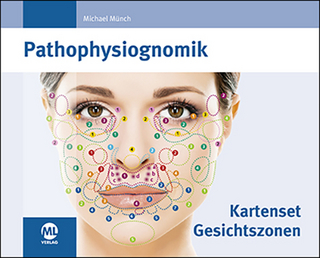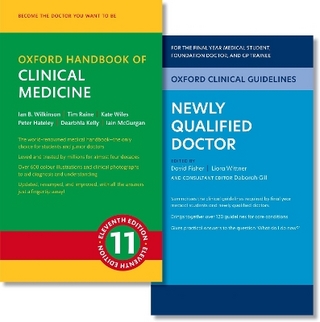
SLS Screener for Language & Literacy Disorders
Brookes Publishing Co
978-1-68125-271-1 (ISBN)
An ideal companion to the groundbreaking TILLS test! Screen with SLS, and then follow up and diagnose with TILLS.
For use on its own or with the Test of Integrated Language and Literacy Skills™ (TILLS™), the Student Language Scale (SLS) reliably screens students ages 6—18 years for language/literacy disorders, including dyslexia. Filled out by parents, teachers, and students, the screener is a quick, cost-effective way to see how students are performing on academic tasks as compared to their same-age peers. Use the SLS to:
Screen for language/literacy disorders, including dyslexia, by gathering teachers' and parents' ratings of students
Gather input about a struggling student's strengths and needs from multiple sources
Enhance home—school communication by gaining new insight into the student's performance and the teacher's and the parents' and student's perspectives on it, whether or not everyone agrees and whether or not there are concerns
Whether used with an entire classroom or with individual students, the SLS is the tool you need to quickly gather valuable information about strengths and needs—and plan next steps for students at risk for disorders.
Why use the SLS?
Expert developed: The SLS developers are highly respected for their test-building skills and evidence-based work in the field of language and literacy assessment and school social work.
Fast and easy: The three-part SLS can be completed in just 3 minutes or less. Administration and scoring is simple—a pencil and paper are all you need.
Strong sensitivity and specificity. Sensitivity of the SLS to risk of language/literacy disorder is .90 for teachers and .85 for parents, and specificity (correct identification of typical learners) is .90 for teachers and .83 for parents.
Cost effective. The SLS helps you screen effectively at a lower cost than comparable tools on the market.
Simple scoring: The 12-item rating scale section of the SLS incorporates descriptive statements that are rated on a scale of 1 to 7 from not good to very good. The first eight items on the scale ask about core language and literacy abilities that represent the 2 language levels x 4 language modalities assessed with TILLS. When teachers or parents rate more than two areas on items 1-8 as less than 5, SLS screening results indicate the student is at risk and needs further assessment.
Perfect for use with TILLS!: The SLS is an ideal companion to the groundbreaking TILLS test, which assesses oral and written language skills in students ages 6—18 years. Gather teacher and parent ratings for whole classes of students with the SLS, and if results indicate that a student is at risk, follow up with TILLS assessment and other forms of language/literacy assessment.
What's in this kit?:
One SLS User's Manual
One gummed tablet of 50 TILLS™ Student Language Scale forms
One SLS Quick Start Guide with basic instructions on administering and scoring
Nickola Wolf Nelson, Ph.D., CCC-SLP, BCS-CL, is Professor Emerita in the Department of Speech, Language, and Hearing Sciences and former Director of the Ph.D. program in Interdisciplinary Health Sciences at Western Michigan University. She is author of the book Language and Literacy Disorders: Infancy Through Adolescence, and first author of the Test of Integrated Language and Literacy Skills (TILLS), as well as editor-in-chief of the journal, Topics in Language Disorders. Dr. Nelson's research and publications focus on curriculum-based language and literacy assessment and intervention. Michele A. Anderson, Ph.D., CCC-SLP, is an assistant professor at Western Michigan University. She was instrumental in coordinating the national validation studies for the Test of Integrated Language and Literacy Skills (TILLS) under the direction of Dr. Nickola Nelson and serves as TILLS Project Coordinator.Dr. Anderson's most recent scholarly work involves investigating the role of verbal working memory in child language assessment, test development, cultural influences on pragmatics of writing, phonological awareness training for pre-school age children, and influences on reading comprehension. She has taught child language development courses at Western Michigan University, co-written articles, and given numerous national presentations on topics related to school-age child language disorders. Elena Plante, Ph.D., CCC-SLP, is a Professor in the Department of Speech, Language, and Hearing Sciences at The University of Arizona in Tucson. She is a fellow both of The University of Arizona's College of Science and of the American Speech-Language-Hearing Association. Her areas of research interest include language learning and assessment practices. She in addition to multiple journal articles on these topics, Dr. Plante is a co-author on the Pediatric Test of Brain Injury and the Test of Integrated Language and Literacy Skills. Dr. Plante has also been using neuroimaging to explore the brain bases of language and cognition for the last 2 decades. She has active national and international collaborations in the areas of neuroimaging, language, and learning.
| Erscheint lt. Verlag | 28.2.2018 |
|---|---|
| Co-Autor | E. Brooks Applegate, Elena Plante |
| Verlagsort | Baltimore |
| Sprache | englisch |
| Maße | 228 x 302 mm |
| Gewicht | 580 g |
| Themenwelt | Medizin / Pharmazie ► Gesundheitsfachberufe ► Logopädie |
| Studium ► 2. Studienabschnitt (Klinik) ► Anamnese / Körperliche Untersuchung | |
| Sozialwissenschaften ► Pädagogik ► Bildungstheorie | |
| ISBN-10 | 1-68125-271-6 / 1681252716 |
| ISBN-13 | 978-1-68125-271-1 / 9781681252711 |
| Zustand | Neuware |
| Haben Sie eine Frage zum Produkt? |
aus dem Bereich


